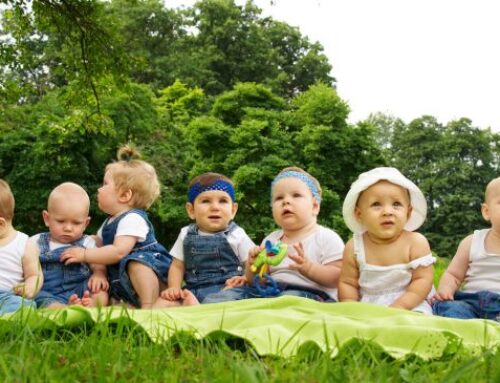Despite an unexpected 3.3 per cent jump in the number of babies in 1988, Quebecois from Premier Robert Bourassa to singer Gilles Vigneault are profoundly concerned about a birth rate that falls far below the 2.1 children per couple needed to at least sustain the current population of 6.6 million.
From an average of 7 children per family a century ago Quebec’s birth rate has plummeted – especially after the Quiet Revolution in the early ‘60s – to the point where today, at 1.5%, it ranks the second lowest in the western world.
Elderly
The story of Quebec today is far fewer babies, more grey haired and a steadily shrinking tax base – like the rest of the country where in 1986, more than 10% of Canadians wee 65 and over.
The “demographic crisis” has had a disquieting effect on many French Canadians. In early February, the French arm of the CBC, Radio-Canada, aired a documentary that forecasted the extinction of French Canada unless a fundamental change in attitudes took place among the French-speaking residents.
Called Disparaitre (Disappearance), the program looked at immigration – with both its advantages and shortcomings – as the way for French Canada to replenish its falling numbers.
Payette
But Disparaitre’s writer-host List Payette, a former cabinet minister in the late Rene Levesque’s PQ government, did not see raising the birthrate as a workable solution.
The program faulted the Quebec government’s attempts to increase the birthrate. In 1988, it decided to provide grants of $3,000 to families who have three or more children. Manpower minister Andre Bourbeau announced February 27, that Quebec will likely present draft legislation to give parents the right of one year leave after the birth of a child.
Both measures are optimistically designed to reverse the trend of the just married to raise families of one or two children or to remain childless.
Materialism
Gilles Grondin, Acting Executive Director of Campaign Life Coalition in Ottawa, blames the demographic crisis on rampant materialism in Quebec society – a cause that programs like Disparaitre won’t acknowledge.
“Religious values have gone out the window,” he told The Interim, “and have been replaced by cultural humanistic values, where only material well-being and pleasure-seeking in the thing worth living for. The rest is nothing.”
Suicide
Quebecois, he said, are committing a double suicide – biological and national. The first, by failing to hand on spiritual values to a sufficient number of children; the second, by handing over the French nation (le pays) to immigrants whom ay not identify with it.
Despite his bleak description of Quebec society today, Grondin still has hope for the future. The people in general are “very keenly conscious” of the threat to the survival of the French nation in North America, and they have communicated their concern to Liberal Premier Robert Bourassa. He stated recently that demography would be a principal theme of the next provincial election to be expected in the summer or early fall.
“History is full of reversals and conversions, even by whole nation,” Grondin explains. “They have left their evil ways and have reformed themselves, and therefore assured their future.” Why should Quebec be an exception, he asks?




